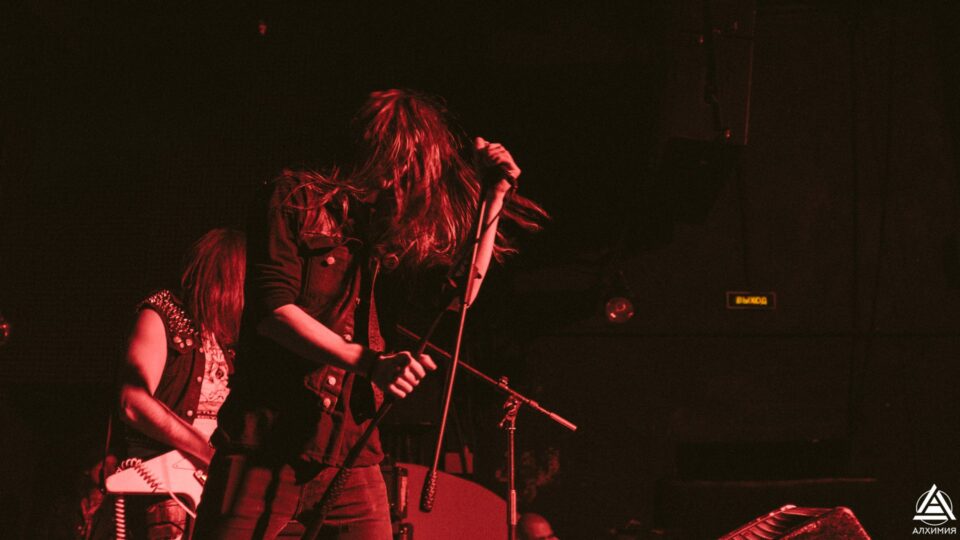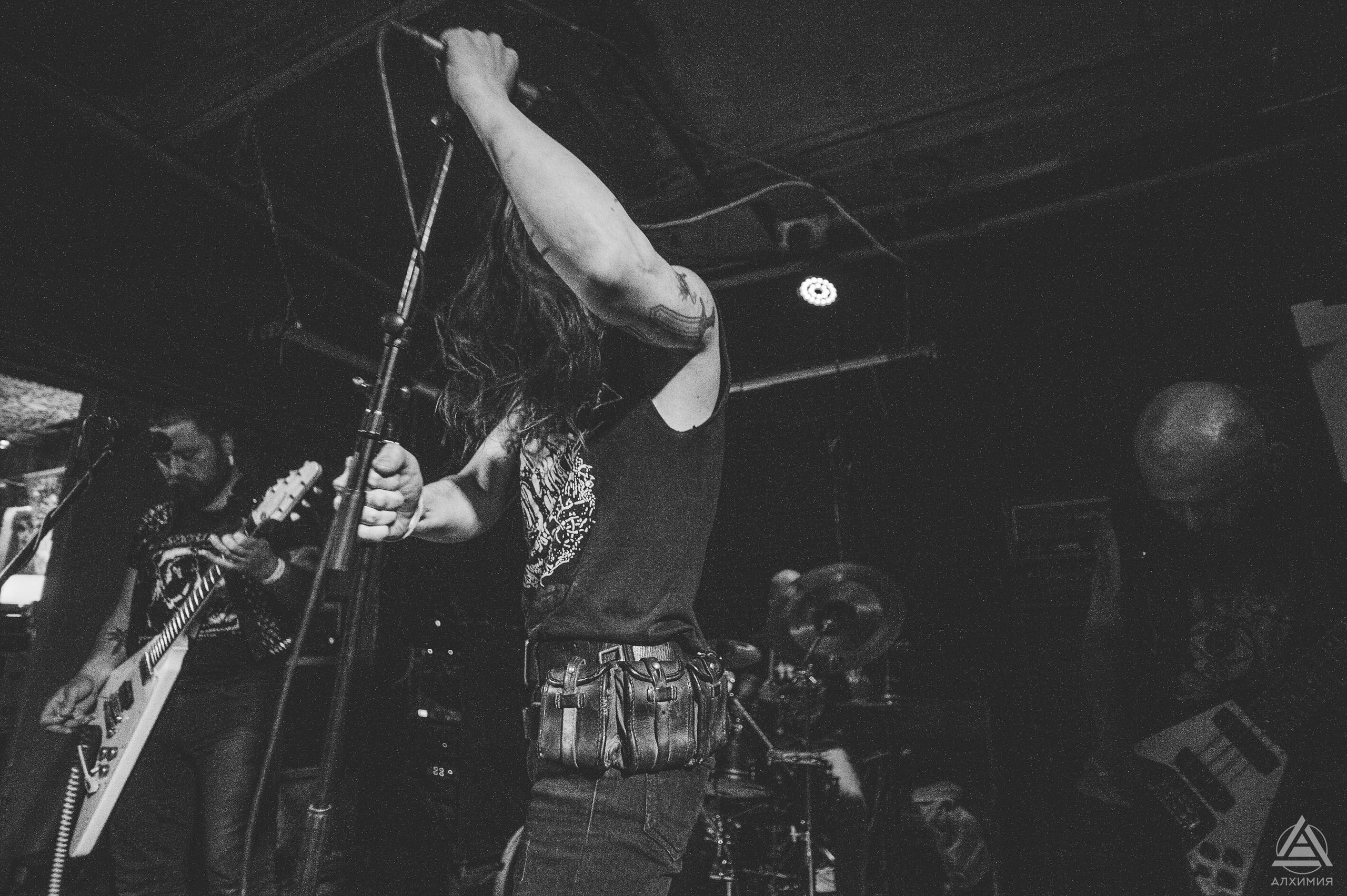Repression Attack are one of the best stenchcore/crust punk bands from the russian wasteland and finally, a few weeks ago, they released “An Endless Landscape of Ugly Shapes,” a new album almost ten years after the previous “Altar of Destruction.”
Some time ago I asked Gleb, the drummer and only original member of the current lineup, some questions to talk not only about crust music and the hardcore and punk scene in Russia, but also about the delicate Russian political, social and military situation following the imperialist aggression of Ukraine and in general about the importance and potential of playing punk today in 2022.
Because yes, it’s important to make punk still a threat, but is equally true that, unfortunately, “songs cannot stop bombs”, using Gleb’s own words.
I leave you with his words, reitereting full support and solidarity with the Russian and Ukrainian people affected by the horrors of imperialist war, the spread of fascism on both side of the border and the geopolitical interests of the Russian and Ukrainian governments!
Fuck imperialism, fuck NATO, fuck fascism!
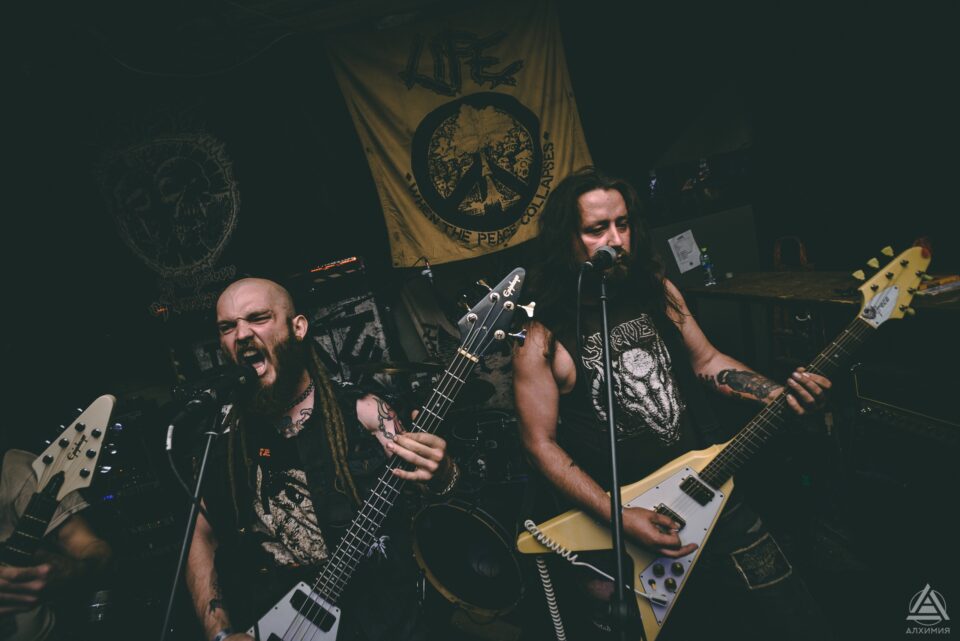
Hi Gleb, hi Repression Attack’! I have read that you have been active since 2007. Would you like to tell us how and why the band was born? But above all, how did you choose your name?
Hello ‘Disastro Sonoro’! That’s right, we started way back in 2007. There was no special goal in creating a band, we were just teenagers who wanted to play the most noisy and aggressive hardcore punk, impressed by such bands as ‘Anti-Cimex’, ‘Extreme Noise Terror’ and ‘Disclose’. The first few years we rehearsed in a garage, where we couldn’t hear a damn thing. In winter it was so cold there that we even could see our breath and our fingers iced up between songs. You gotta play fast to not to freeze to death)) It was a forced necessity, because we didn’t have much money then, but at least we had some shoddy equipment and our garage))
Initially, we named our band ‘Decontrol’ (after the ‘Discharge’s song), but quickly realized our mistake and soon changed the name to ‘Repression Attack’. I like the way it sounds, there is power, pressure and anger in it, which perfectly suited the music that we decided to play. However, I know these two words do not collocate. The name implies a policy of ACTIVE suppression of civil and any other freedoms by the state on the domestic political fronts, which is only becoming more relevant every year in Russia.
I admit that I discovered you thanks to your 2013 ‘The Altar of Destruction’ a stench-crust record that I immediately fell in love with so much that I even wrote a review about it on Disastro Sonoro. How was that record born? And which are the bands that influenced you the most in the writing of those tracks and in general of your music?
‘The Altar of Destruction’ was recorded live in the fall of 2012, except that the vocals and some solos were added separately. So all our screwups are presented in full on the record. By the time of recording, the band’s lineup had grown to five people: a frontwoman and the second guitarist joined us. Since we quickly got bored playing discore, we gradually began to make the sound heavier and slow down the tempo. We wanted to be like the British bands of the late 80s, but since we were influenced by many things we ended up with something completely different. British crust classics and their followers from Japan and the USA (‘Age’, ‘Effigy’, ‘Misery’) influenced us then. None of the labels was interested in our work so we released the album on our own CDs, distributing it through the Distro to many countries.Tapes were released in Belarus by ‘Vomit Rec’.
Every listener and lover of crust punk and so-called ‘stenchcore’ knows that Russia has an excellent tradition of bands committed to playing this genre, from the most famous ‘Fatum’ to bands such as ‘Kärzer’ and ‘Step to Freedom’. To what do you think is due this fertility of crust punk/stenchcore bands in your country? Do you think there are any specific factors that drive people to play this exact sub-genre of punk?
I’m afraid that these names practically exhaust the list of such groups in Russia. This is not the tip of the iceberg at all, as it may seem, but actually the entire scene. The dudes playing in these bands are all about the same age, so it seems like we were all overwhelmed by one smelly wave of filthy-metalpunk that rise on the other side of the Atlantic in the mid-2000s. I think that the fact that we were all born and raised on the ruins of the Soviet Empire and watched the same films about the gloomy future (which seems to have come), had an undoubted influence on our worldview. But that’s just my guess.
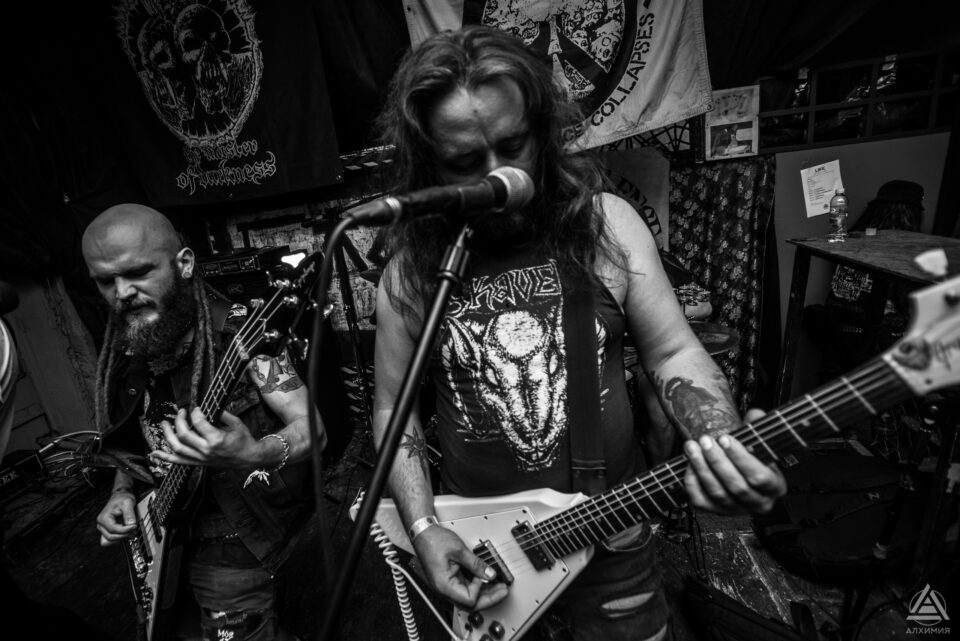
Strongly related to the previous question, how is the situation of DIY and underground hardcore punk and metal scene in Russia and especially in your city? What are the most interesting bands and the most valid realities on the level of collectives, squats/social centers, fanzines etc.?
The scene is this active mostly in Moscow and St. Petersburg. Provincial towns are quite dull and gray, including Ryazan.
Many inspired people who keep their small town’s scenes alive, eventually either move or become disillusioned and just give up. There is a couple of bands in our city with whom we enjoy sharing concert venues, but their music is far away from crust punk. And we rarely perform at home. Paper zines have become a rare curiosity many years ago, giving way to online media. I don’t know much about the squatter movement today.
In the last months the Russian socio-political situation has been at the center of media interest everywhere in the world, even here in Italy because of Putin’s imperialist aggression against Ukraine and the resulting conflict. As an anarchist I sided against both the imperialist attack of Putin and the pro-neofascist positions of Zelensky supported by the imperialist interests of NATO. If you’d like, I’d be interested to know your position on this difficult situation. Has there been any reaction from the more politicized and militant punk/hardcore scene in Russia to this situation?
We can talk and argue about the conflict’s causes for a long time, the interview’s format is not enough for this. From the first day it was clear that this is not a ‘special operation’ at all, but a real war, with all its ‘charms’. You don’t have to be a scientist to understand that there where the troops and large amount of military equipment are brought, there is death, grief and destruction. As it turned out, this is not obvious to everyone in Russia. Propaganda cleverly uses the presence of ultra-right radicals in the Ukrainian military (I mean those who use Nazi symbols without hesitation), as well as the policy of de-communization, meaning the fight against the memory of the Soviet past, as a scarecrow for Russian philistines, disguising their predatory imperialist aspirations as fighting Nazism. What we see is an attempt to use the role models of the World War II in the XXI century.
Russian government took the Maidan very painfully, because it considers Ukraine an area of its interests. In the prospect of Ukraine joining NATO it feels a threat to its security, knowing the bitter experience of Yugoslavia.
Russia does not want American military bases near its borders, Ukraine does not want Putin and his totalitarian bullshit.
Since the beginning of the ‘military special operation’, there’s been passed a new law prohibiting any criticism of the Russian military’s actions. Anti-war demonstrations are being severely suppressed by the police and the Rosgvardiya (National Guard of Russia). Independent media is banned, any anti-war slogans too.
The Russian President threatens the West with a nuclear war, the Foreign Minister accuses Jews of the Holocaust, the former Prime Minister declares that it is now possible to lift the moratorium on the death penalty, and the propaganda broadcasts about the beginning of the World War III! Here are our realities of today. It is worth thinking carefully about which side of the border fascism is walking with an iron tread.
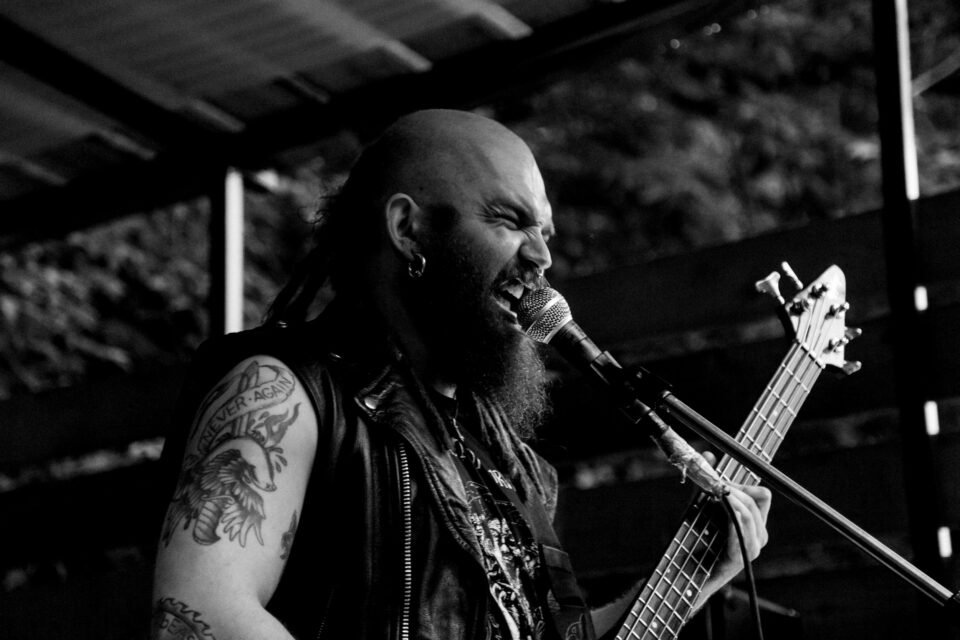
What does it mean for Repression Attack to play crust punk today in 2022? Do you think that genres like punk can still have the potential to resist and attack this world dominated by the interests of capitalism and the brutal repression of states?
I think that punk rock, with all the subgenres, helps to develop a critical view of the ‘normal’ world. But in the face of real tyranny music is powerless, especially the one favored by the minority. Songs can’t stop bombs.
’An Endless Landscape of Ugly Shapes’, your very latest album was released very recently. What you can tell us about this album? Musically it is a mix of classic stenchcore and psychedelic digressions. What were your influences on this album and why did you open up to a more complex, psychedelic an space rock sound?
We spent quite a lot of time, effort and nerves recording ‘An Endless Landscape of Ugly Shapes’, but the result was worth it. Musically this is no longer the tooth-crushing stenchcore, familiar to you from our previous works, but a real ‘psychedelicrust’, as we call it for fun. In addition to the usual set of instruments, we recorded a saxophone and a lot of different percussion. We always try to develop and improve our musical style, making the material so that it would be interesting for us to play and listen. Krautrock bands influenced us a lot with their extraordinary and anarchic approach to creativity.
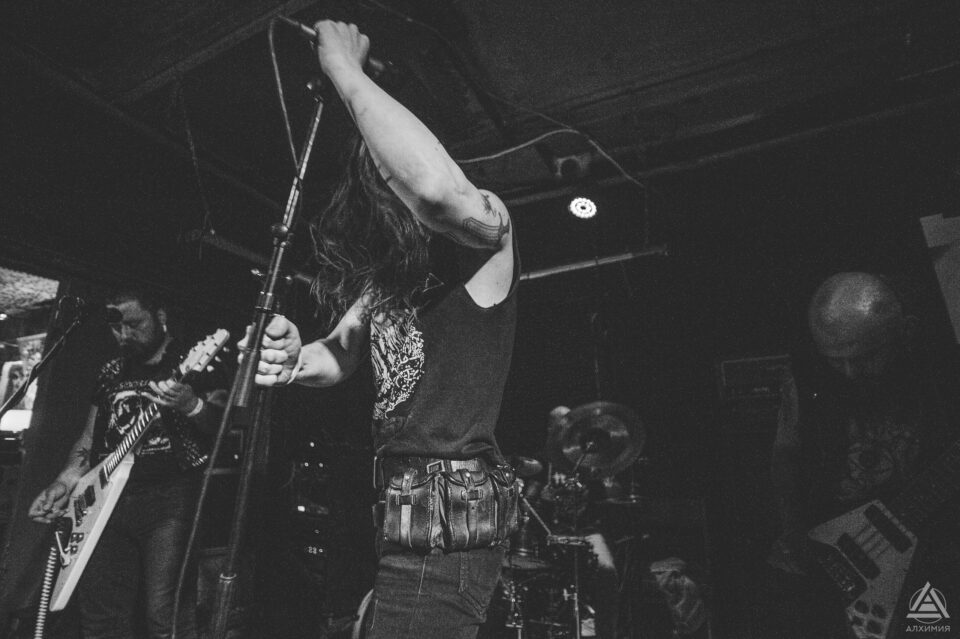
What do you want to convey with your music? What do you deal with in the lyrics and what inspires you in their writing?
The main idea of our first record was that the human kind is the Altar of Destruction, through whose fault and in whose name blood is shed throughout history. Sadly as it sounds, the desire to destroy our own kind is a distinctive feature of our species. On ‘The Endless Landscape’ the lyrics became more personal. Inner search, struggle with oneself, loss of a sense of reality, frustration and insanity – these are our main topics. We translate our lyrics into English, they’re available on our ‘Bandcamp’, the new album is no exception. We’re inspired by negative life experiences, as well as literature and cinema. For example, the text to ‘The Nameless City’ was written after reading H.F. Lovecraft’s story of the same name, but I slightly deviated from the original narrative, and the song turned out to be about the cyclical nature of history and the inevitability of repeating fatal mistakes.
Beyond the new album, other future projects for ‘Repression Attack’? Do you have gigs and tours planned?
No, we don’t have any plans at the moment. The situation does not allow us to.
We have come to the end of this interview so I leave this space at your complete disposal so that you can add anything else you think might be interesting. A big hug in solidarity with the Russian people and in total opposition to Putin’s imperialist interests!
Take care, friends! Keep your head cool and be human!
